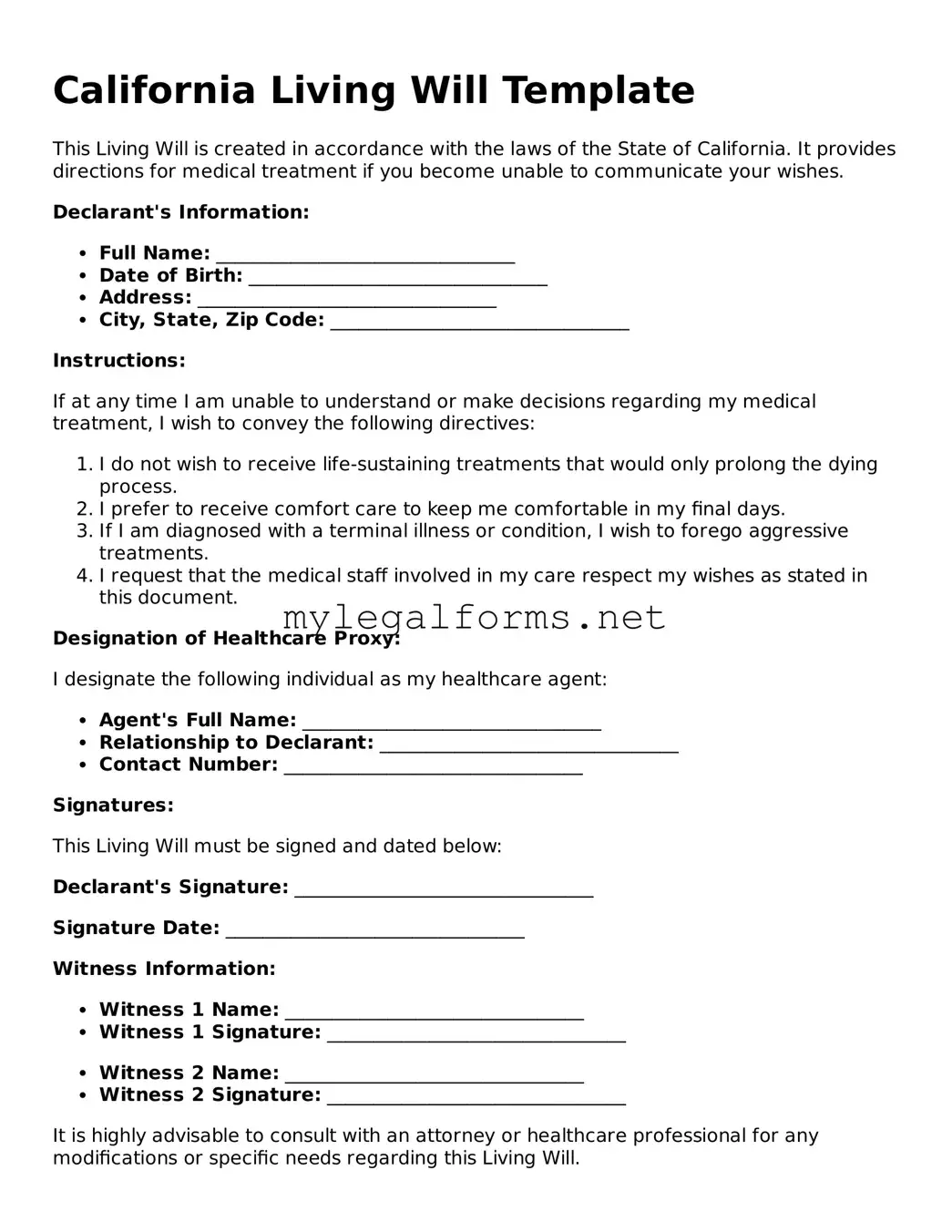Living Will Document for California State
A California Living Will form is a legal document that outlines an individual's wishes regarding medical treatment in the event they become unable to communicate their preferences. This form helps ensure that healthcare providers and family members understand the person's desires about end-of-life care. By completing a Living Will, individuals can express their values and priorities, providing clarity during difficult times.
Launch Living Will Editor

Living Will Document for California State
Launch Living Will Editor

Launch Living Will Editor
or
⇓ PDF Form
Complete the form at your pace — fast
Finish your Living Will online and download the final version.